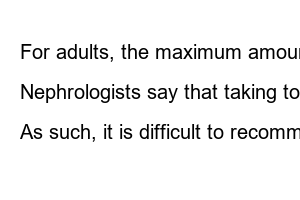비타민 C 과다 복용Taking much more vitamin C than the recommended amount is called ‘megavitamin therapy.’ This therapy, advocated by Linus Pauling, has a very long history. Vitamin C products sold at pharmacies are usually high-content preparations containing 500 mg to 1 g of ascorbic acid. Many people who purchase it take 2 to 6 pills or up to 12 pills a day, so they are literally taking a mega dose.
What is the reason for taking such large amounts of vitamin C?
First of all, most people expect the antioxidant effect of vitamin C. In fact, since vitamin C is so effective in removing free radicals, it is expected to have anti-cancer effects as well. In addition, vitamin C is necessary for the metabolism and synthesis of amino acids such as tyrosine and tryptophan, as well as carbohydrate metabolism, and helps in the synthesis of carnitine, which is also involved in fat breakdown and cholesterol excretion. In other words, it is necessary for carbohydrate, fat, and protein metabolism.
It is also essential for folic acid synthesis, metabolism, and activation and promotes iron absorption. Therefore, if you have anemia, you must take vitamin C. Because it inhibits collagen biosynthesis and melanin pigment production, it is also effective in wound healing and skin whitening. It is also involved in the synthesis of neurotransmitters, so it is closely related to brain function, and has the effect of preventing infection or controlling inflammatory responses through immune cell differentiation and white blood cell function activation.
But can we actually expect all of these effects if we take a lot of vitamin C?
well. There are many papers claiming that it reduces pain caused by herpes, muscle damage after exercise, or promotes lead excretion, but most of them were tested on animals or supplied vitamin C directly into the bloodstream through intravenous injection. The issue here is absorption and excretion. If vitamin C does not stay in the body for very long, it may be difficult to expect as great an effect as expected.
Vitamin C is absorbed through special channels in the small intestine. If you consume a lot of vitamin C, the absorption rate decreases and the amount excreted by the kidneys increases, keeping the concentration of vitamin C in the body constant. If you consume 30 to 180 mg of vitamin C a day, 7 to 90% is absorbed into the body, but if you consume more than 1,000 mg, this decreases to less than 50%. In other words, even if you consume a large amount of vitamin C a day, it is difficult to say that all of it is absorbed.
For adults, the maximum amount of vitamin C stored is about 1500 to 2000 mg. It is said that if you take 100 mg a day, the white blood cell saturation concentration is reached in an average adult. Vitamin C is very important for white blood cells. This is because in situations of infection or inflammatory stress, a large amount of reactive oxygen species is generated due to phagocytosis and neutrophil activation. Vitamin C in white blood cells is used as an indicator of storage in the body, and for this reason, the recommended intake of vitamin C is ‘100 mg/day.’ Of course, if you take a higher dose than this, the plasma concentration rises very slightly. If you take 1000-2500mg per day, it can no longer stay in the body and is excreted through the kidneys.
The problem is that the vitamin C that is metabolized and excreted is converted into oxalic acid, which becomes a component of stones. In particular, urinary stones have a high recurrence rate, so people who have had them once should be especially careful.
Nephrologists say that taking too much vitamin C and having low blood calcium levels increases the risk of developing stones, but people are not aware of this. If the calcium concentration in the blood is low, a large amount of calcium dissolves from the bones into the blood, increasing the risk of stones. This is called the calcium paradox.
In addition, high concentrations of vitamin C are not fully absorbed and remain in the intestines, which increases osmotic pressure and increases the amount of water in the stool. This may cause diarrhea. Occasionally, people with constipation say that their bowel movements have improved after taking vitamin C. This does not mean that constipation has been cured by vitamin C, but that moisture is lost due to unabsorbed vitamin C.
As such, it is difficult to recommend overdosing on vitamin C for various reasons. The safe maximum dose is considered to be 2000 mg per day, and it is recommended to take it in several doses after meals rather than all at once.

